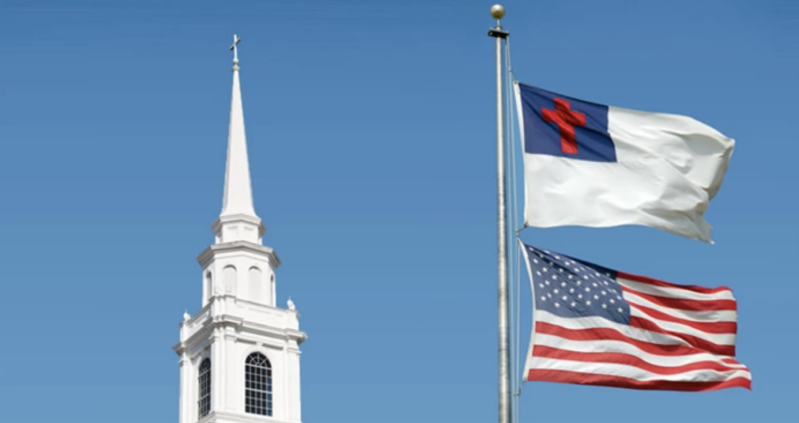
Hundreds of Evangelical leaders have signed a statement outlining their shared beliefs about the relationship between faith and politics, encouraging Christians to consider each candidates' "character and not merely their promises or political success" ahead of the 2024 election.
More than 300 pastors, faith leaders and Christian public figures have backed the "Confession of Evangelical Conviction," as the 2024 presidential election between Vice President Kamala Harris, a Democrat, and former President Donald Trump, a Republican, is less than two months away.
One signatory, Rev. Gabriel Salguero, president and founder of the National Latino Evangelical Coalition and pastor of The Gathering Place Assemblies of God congregation in Orlando, Florida, told The Christian Post he is "encouraged" by the support of the statement from a broad swath of Pentecostal and Evangelical leaders from across the country.
"[They] may be different in terms of ... the way they vote, see the centrality of the Gospel," he said. "I think that it's a good reminder, and I'm hopeful that ... people who give a close read to it don't see it as anything more than a pastoral call to 'let's engage this in the spirit of Christ and let's not hurt the credibility of our Christian and Evangelical witness by speaking ill of other people who may disagree with us.'"
'Not aimed at anyone'
Notable signatories include Russell Moore, former head of the Southern Baptist Convention's Ethics and Religious Liberty Commission; Revs. Galen Carey and Walter Kim of the National Association of Evangelicals; Justin Giboney of the And Campaign; progressive Christian author Shane Claiborne of the advocacy group Red Letter Christians, Christian rapper Lecrae and megachurch Pastor Joel C. Hunter.
Several signatories, including Moore, Claiborne and Ekemini Uwan of the advocacy group Evangelicals for Harris, have expressed outspoken opposition to former President Donald Trump and the support he has received within the Evangelical community.
Salguero said the declaration's support from progressive Christians and Trump critics doesn't mean it is directed at Trump-supporting Evangelicals.
"This document is not aimed at anyone," he told CP. "This document is a call to put Christ first in all our public engagement. I think that I, as a pastor, don't use the language of ... aimed at this or aimed at that; I think that's political language, not pastoral language. And I'm not a politician; I'm a pastor. And so I try to eschew phrases like 'this is aimed at.'"
Salguero called the statement a "Gospel-centered, biblical call to ... engage in the public sphere with respect, with the spirit of Christ, with the tone of Christ and with the truth of Scripture" that is "balancing grace and truth without being uncivil, without name-calling, without being [harsh] to people who may disagree with us or who we may disagree with."
"It's not aimed at anyone," he reiterated. "It's a call to the Church to remember that we engage in the public sphere in the spirit of Christ and with the teachings of Jesus."
"We call people from every part of the political spectrum to respect and love each other," he added.
Salguero said he has both Democrats and Republicans in his congregation and family.
"There are Republicans and Democrats who I think if they read the confession closely would be fine in saying, 'Hey, this is about having the Gospel as a primary allegiance,'" he said.
The 'authority that belongs to Christ'
The declaration begins by acknowledging the "moment of social conflict and political division" the United States is in and contains several references to Scripture.
The first conviction proclaims, "We give our allegiance to Jesus Christ alone."
"We affirm that Jesus Christ is God's son and the only head of the Church (Colossians 1:18)," the confession states. "No political ideology or earthly authority can claim the authority that belongs to Christ (Philippians 2:9-11). We reaffirm our dedication to his Gospel which stands apart from any partisan agenda. God is clear that he will not share his glory with any other (Isaiah 42:8)."
"Our worship belongs to him alone (Exodus 20:3-4), because our true hope is not in any party, leader, movement, or nation, but in the promise of Christ's return when he will renew the world and reign over all things (1 Corinthians 15:24-28)," the confession continues. "We reject the false teaching that anyone other than Jesus Christ has been anointed by God as our Savior, or that a Christian's loyalty should belong to any political party."
"We reject any message that promotes devotion to a human leader or that wraps divine worship around partisanship," they wrote.
Vowing to "lead with love, not fear," the second conviction asserts that "Unlike the false security promised by political idolatry and its messengers, the perfect love of God drives away all fear (1 John 4:18)."
The signatories "reject the stoking of fears and the use of threats as an illegitimate form of godly motivation" and repudiate "the use of violence to achieve political goals as incongruent with the way of Christ."
"We submit to the truth of Scripture," the third conviction states. "To lie about others, including political opponents, is a sin (Exodus 20:16)."
The statement also opposes the "misuse of holy Scripture to sanction a single political agenda, provoke hatred, or sow social divisions, and we believe that using God's name to promote misinformation or lies for personal or political gain is bearing his name in vain (Exodus 20:7)."
The confession expresses confidence that "the Gospel heals every worldly division." The leaders condemned "any attempt to divide the Church, which is the body of Christ, along partisan, ethnic, or national boundaries" and characterized "any message that says it is God's desire for the human family to be perpetually segregated by race, culture, or ethnicity" as "a rejection of the Gospel."
The declaration includes a commitment to "the prophetic mission of the Church," which affirms that "Christ's kingdom is not of this world (John 18:36), therefore the Church necessarily stands apart from earthly political powers so that it may speak prophetically to all people, the society, and governing authorities."
The Church's role in public engagement
The confession also highlights the Church's obligation to engage in "public life with humility, integrity, and a commitment to the common good as defined by our faith in Christ (Romans 12:18)."
"We reject both the call for the Church to withdraw from societal issues out of fear of political contamination, as well as any attempt to distort the Church into a mere vehicle of political or social power," the statement adds.
The sixth conviction indirectly signals support for the pro-life cause: "We value every person as created in God's image."
The signatories agreed that "Our faith in Christ, therefore, compels us to act with love and mercy toward all from the very beginning of life to the very end, and honor everyone as an image-bearer of God regardless of age, ability, identity, political beliefs, or affiliations (John 13:34-35)."
Salguero shared his belief that Christians should speak into policy and politics, "but we should stay clear of hyperpartisanship or political idolatry." He doesn't believe that pastors should say to parishioners, "This is God's candidate."
"So I think from issues of pro-life to religious liberty to ... how we treat the poor, how we treat children, to how we look at education ... the list is long. I think Scripture has something to say about that, and I think it should be Gospel-informed. So the Gospel informs how we see policy and how we see platforms from all the candidates, but I think the Gospel is clear that God ... does not endorse candidates."
Recognized 'by their character'
The final pillar included in the confession maintains that "godly leaders" will be recognized "by their character."
Affirming that "the character of both our political and spiritual leaders matter," the signatories said that the faithful had an obligation to "evaluate leaders based on their actions and the fruit of their character and not merely their promises or political success (Matthew 7:15-20)."
"When any leader claims to have God's approval, whether in the Church or in politics, we will not confuse effectiveness for faithfulness, but carefully discern who is truly from God (1 John 4:1). We reject the lie that a leader's power, popularity, or political effectiveness is confirmation of God's power, or that Christians are permitted to ignore the teachings of Christ to protect themselves with worldly power."
Salguero asserted, "You can vote for someone who's flawed; everyone is flawed." At the same time, he believes, "We can't defend things that are wrong in the name of hyperpartisanship."
"Whether you're a Democrat or a Republican, if the candidate does something contrary to Scripture, we need to hold that candidate accountable. We cannot have blind allegiance to political candidates. ... We vote, we are scripturally informed, but not blind allegiance."
The leaders' declaration comes as some faith leaders have voiced their support or opposition to a political candidate or party.
For example, in a video shared on social media last week, Pastor Jack Hibbs of the California-based Calvary Chapel Chino Hills urged Christians not to support Democrats in the 2024 presidential election, referring to the party as a "death cult" because of its support for legal abortion.
In 2022, Pastor Jamal Bryant of the New Birth Missionary Baptist Church in Atlanta criticized Republican Senate candidate Herschel Walker from the pulpit and encouraged his congregation to vote for Democratic Sen. Raphael Warnock. Bryant claimed "white men" have been telling Walker what to do and that Georgia needs a "runner," not a "walker." Bryant chastised rapper Kanye West in 2019 from the pulpit for endorsing Trump.
Originally published by the Christian Post.





